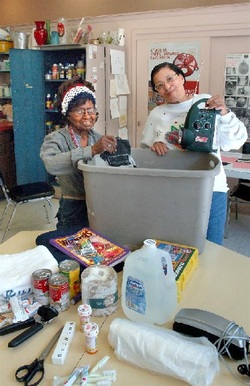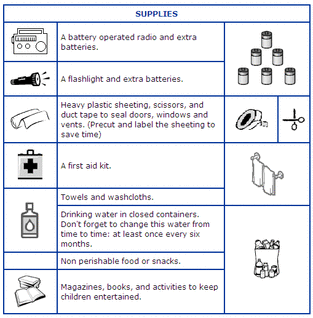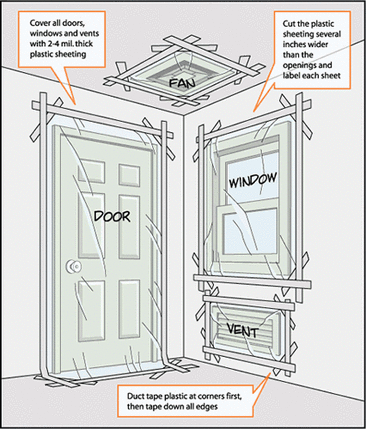Chemical Plant Reform
“After Bhopal, everyone around here were in a panic. It was like you know it's there, you know the danger, but there's nothing you can do to stop it. Life goes on.”
-Sandra Thompson, resident of West Virginia near the Bayer CropScience Plant where MIC is held.
The tragic event in Bhopal showed chemical safety was an issue to take seriously. If water getting into a tank could cause so much destruction, what could an explosion or chemicals coming in contact with each other do? One night of disaster changed chemical safety and possibly saved others from another chemical leak of the same magnitude or worse.
“It changed everything for West Virginia. Nobody thought that coal mining was our biggest danger anymore.”
-Charles Smith, another resident of West Virginia
The major change the Bhopal Gas Disaster brought about was process safety. Process safety is a comprehensive, systematic approach encompassing the proactive identification, evaluation, and mitigation or prevention of chemical releases that could occur as a result of failures in process, procedures, or equipment. Process safety is used in chemical plants all over the world beginning in 1985 with the creation of the Center for Chemical Process Safety (CCPS) by the American Institute of Chemical Engineers.
Another major change was inacted to help the citizens who live around chemical plants know what to do in case of an emergency. People are encouraged to stay inside their homes, turn off ventilation systems, and put duct tape around windows and doors.
"Shelter in Place drills are something you grow up learning how to do now, but you didn't before Bhopal. Now, the local schools have them regularly, just like fire drills."
-Sandra Thompson
-Sandra Thompson, resident of West Virginia near the Bayer CropScience Plant where MIC is held.
The tragic event in Bhopal showed chemical safety was an issue to take seriously. If water getting into a tank could cause so much destruction, what could an explosion or chemicals coming in contact with each other do? One night of disaster changed chemical safety and possibly saved others from another chemical leak of the same magnitude or worse.
“It changed everything for West Virginia. Nobody thought that coal mining was our biggest danger anymore.”
-Charles Smith, another resident of West Virginia
The major change the Bhopal Gas Disaster brought about was process safety. Process safety is a comprehensive, systematic approach encompassing the proactive identification, evaluation, and mitigation or prevention of chemical releases that could occur as a result of failures in process, procedures, or equipment. Process safety is used in chemical plants all over the world beginning in 1985 with the creation of the Center for Chemical Process Safety (CCPS) by the American Institute of Chemical Engineers.
Another major change was inacted to help the citizens who live around chemical plants know what to do in case of an emergency. People are encouraged to stay inside their homes, turn off ventilation systems, and put duct tape around windows and doors.
"Shelter in Place drills are something you grow up learning how to do now, but you didn't before Bhopal. Now, the local schools have them regularly, just like fire drills."
-Sandra Thompson
15 Reasons Chemical Plant Safety is Important
1. Safety protects workers, employers and all people in the plant including strangers from illness, injuries or death.
2. Ensuring survival of company's business.
3. It prevents company's property and facility from damage.
4. It enhances company's reputation.
5. It teaches people in the plant how to work safely.
6. It helps company to achieve its targets and objective.
7. Keeping company away from law suits and penalties.
8. It keeps workers to feel comport, happy and safe.
9. Company will be avoided from unnecessary cost.
10. It keeps workers awareness alive.
11. Safety teaches everyone in the plant to pay attention to their workplaces and surrounding.
12. It keeps customer's confidence to do business with the company.
13. Safety program is a cost-effective decision for the company.
14. Safety is able to reduce employee's turn over and increase productivity.
15. Safety can prevent production process interruption and shut down.
2. Ensuring survival of company's business.
3. It prevents company's property and facility from damage.
4. It enhances company's reputation.
5. It teaches people in the plant how to work safely.
6. It helps company to achieve its targets and objective.
7. Keeping company away from law suits and penalties.
8. It keeps workers to feel comport, happy and safe.
9. Company will be avoided from unnecessary cost.
10. It keeps workers awareness alive.
11. Safety teaches everyone in the plant to pay attention to their workplaces and surrounding.
12. It keeps customer's confidence to do business with the company.
13. Safety program is a cost-effective decision for the company.
14. Safety is able to reduce employee's turn over and increase productivity.
15. Safety can prevent production process interruption and shut down.
Interview with Robert Searles
What was your title?
Production and Maintenance Technician
How long did you work in the chemical plant industry?
“I worked at FMC for 15 years and three other plants for a total of 38 years, almost 39.”
What were your responsibilities?
“I had a lot of responsibilities like maintain and repair pump and conveyors. I worked on pretty much everything in there. I also looked over the production of chlorine.”
What were the safety measures like before Bhopal?
I think they were good, but after Bhopal my employers were much more diligent and had a higher awareness. We had a lot of safety training. We were responsible for things in the river. I took samples and we gave samples from us too. There will be incidents of people making mistakes, but I felt comfortable with the training I had. The people I worked for didn’t want anyone to get hurt. You don’t survive in this business without safety.”
What was it like immediately after the Bhopal Tragedy?
Immediately, you could see a higher awareness in everyone. We knew we had to be extremely careful because we had neighbors. There is a mall and people’s houses right next to us.” I think every year they try to do better.
Were you concerned for your safety?
“No. I wasn’t afraid, but I didn’t forget it either. I felt comfortable enough with the people I worked with, but we made sure the fire department was familiar with the building in case of an emergency.”
What safety measures were put in place after Bhopal?
“I think mostly a higher awareness. You could see it and feel it. I think it was a wake up call that you cannot scrimp on safety and you cannot let it happen again. Things that were ok in 1971 weren’t ok after Bhopal.”
Production and Maintenance Technician
How long did you work in the chemical plant industry?
“I worked at FMC for 15 years and three other plants for a total of 38 years, almost 39.”
What were your responsibilities?
“I had a lot of responsibilities like maintain and repair pump and conveyors. I worked on pretty much everything in there. I also looked over the production of chlorine.”
What were the safety measures like before Bhopal?
I think they were good, but after Bhopal my employers were much more diligent and had a higher awareness. We had a lot of safety training. We were responsible for things in the river. I took samples and we gave samples from us too. There will be incidents of people making mistakes, but I felt comfortable with the training I had. The people I worked for didn’t want anyone to get hurt. You don’t survive in this business without safety.”
What was it like immediately after the Bhopal Tragedy?
Immediately, you could see a higher awareness in everyone. We knew we had to be extremely careful because we had neighbors. There is a mall and people’s houses right next to us.” I think every year they try to do better.
Were you concerned for your safety?
“No. I wasn’t afraid, but I didn’t forget it either. I felt comfortable enough with the people I worked with, but we made sure the fire department was familiar with the building in case of an emergency.”
What safety measures were put in place after Bhopal?
“I think mostly a higher awareness. You could see it and feel it. I think it was a wake up call that you cannot scrimp on safety and you cannot let it happen again. Things that were ok in 1971 weren’t ok after Bhopal.”



